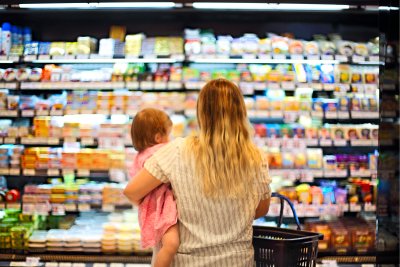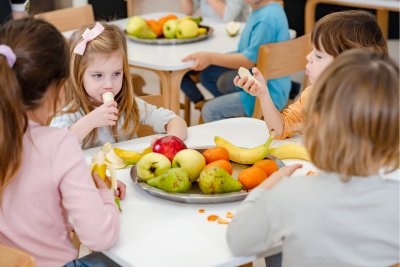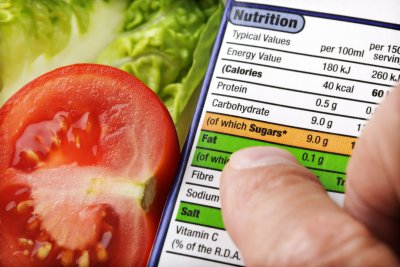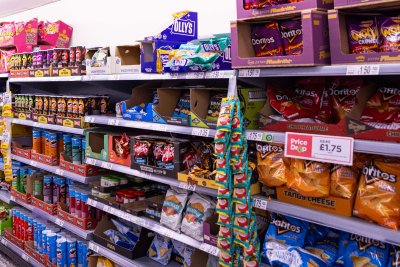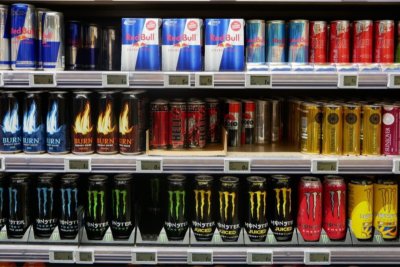 Energy drinks carry warning labels saying "Not suitable for children". Credit: Joenomias | Pixabay
Energy drinks carry warning labels saying "Not suitable for children". Credit: Joenomias | Pixabay
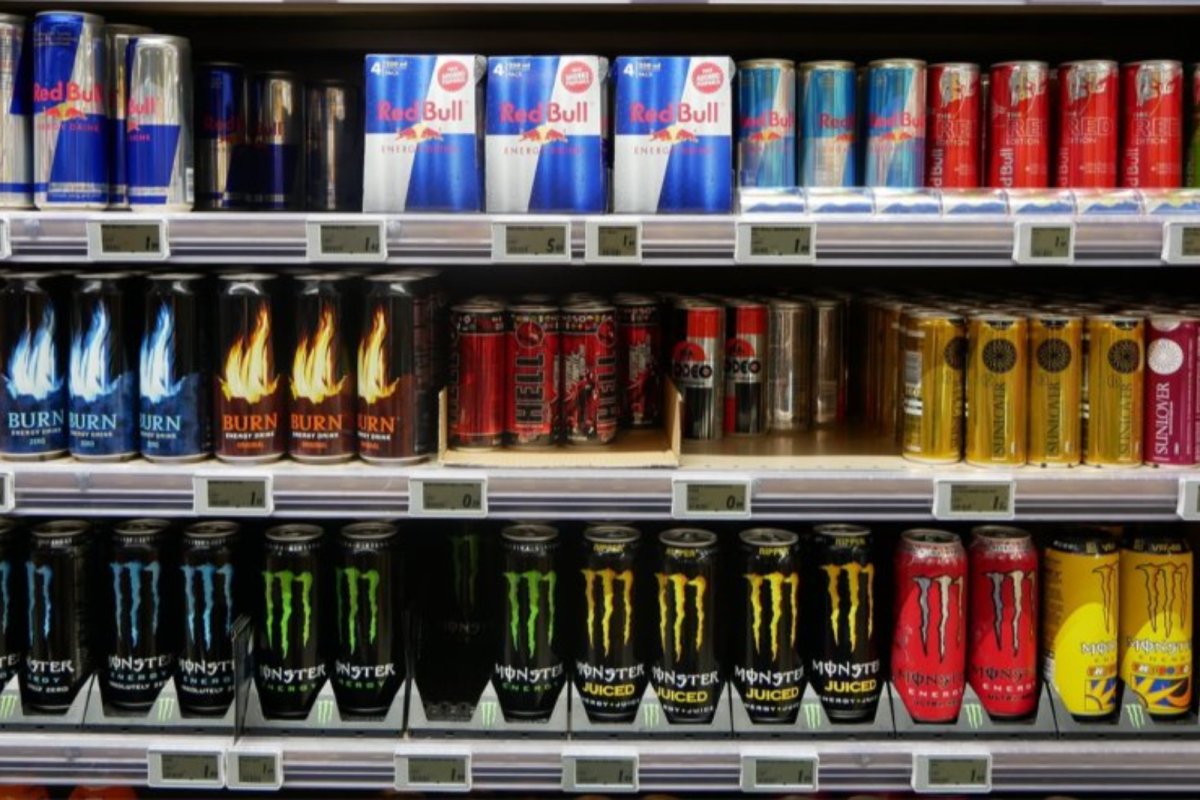
Government to ban high caffeine energy drinks sales to children
Sustain's Children's Food Campaign welcomes the government's plans to ban the sales of high caffeine energy drinks to under-16s as a logical step for drinks that already carry warning labels saying 'not suitable for children'.
The government has opened a 12-week public consultation on plans to ban sales of high-caffeine energy drinks to under-16s, citing concerns about their effects on both children's physical and mental health, as well as disruption to learning.
Our Children's Food Campaign, which has campaigned on this issue for many years, welcomes the proposed ban as something that is both strongly evidence based and has high levels of public support, including parents, teachers and health professionals.
The most recent evidence review published in 2024 exposed multiple negative effects associated with high consumption of caffeinated energy drinks by young people, including depression and anxiety, tiredness, sleep disruption and reduced ability to learn effectively and concentrate in class.
Children's Food Campaign Manager Barbara Crowther says:
“High caffeine energy drinks already carry warning labels saying ‘not suitable for children’, so it’s absolutely right for the government to limit them from being sold to children too.
“They are branded and marketed to appeal to young people through sports and influencers and far too easily purchased by children in shops, cafes and vending machines. Parents, teachers and health professionals have all called for this policy, so let’s get involved with the consultation and support children’s health.”
A ban on sales of energy drinks to under-16s was one of five key priorities for in our Parents' Manifesto for Healthy Children's Food, supported by 80% parents in national polling, with support especially high amongst parents of 8-15 year olds. This reflects the Department for Education's parent survey which showed 82% of parents are concerned about the effects of high caffeine energy drinks on children. Our parent ambassadors have also shared their first hand experience of the effects of these drinks for their own children, as well as others they work with.
Children's Food parent ambassador Lauren Morley, who also works a mental health advocate and healthy food educator says:
As a parent of a 6-year-old and an educator with 13 years’ experience, I’ve seen the harm these drinks cause. In schools, I’ve witnessed panic attacks, anxiety and poor focus, often after students consume multiple cans instead of breakfast.
“My concern grows as my child gets older. When young people stop drinking them, we see their wellbeing, concentration, and mood noticeably improve. I welcome the Department of Health and Social Care’s consultation on restricting high caffeine energy drink sales to children.”
Children's Food parent ambassador Dr Rounaq Nayak, who has two children says:
“As a parent, I welcome the government’s announcement on restricting high caffeine energy drink sales to children. I’ve seen how marketing and peer influence make these drinks seem appealing – from my youngest wanting to copy older kids to my eldest believing they make you ‘faster’ at sport. Clear regulation, alongside education in schools and for parents, is essential to protect children’s health and ensure companies are held accountable for how these products are promoted.”
An estimated 100,000 children consume at least one high caffeine energy drink every day, whilst one in three young people aged 13-16 and one in four 11-12 year olds consume one or more weekly. The plans set out by the government are estimated to help prevent up to 40,000 cases of obesity in children, as part of a wider mission to create the healthiest generation of children ever.
Carrera, a young Bite Back activist from Milton Keynes, said:
“Energy drinks have become the social currency of the playground — cheap, brightly packaged, and easier to buy than water. They’re aggressively marketed to us, especially online, despite serious health risks.
“We feel pressured to drink them, especially during exam season, when stress is high and healthier options are hard to find. This ban is a step in the right direction — but bold action on marketing and access must follow.”
The plans out for consultation would make it illegal to sell energy drinks containing more than 150mg caffeine per litre to under-16s in any shop, cafe, restaurant or vending machine. Many products currently popular with young people including Prime Energy, Monster, Red Bull, Rockstar and Carabao typically contain more than twice this level of caffeine.
At present, some large supermarkets have put voluntary age checks in place, but young people can still purchase the drinks through a wide range of other outlets. The measures, which are supported by the British Retail Consortium, would send a clear, consistent signal that these drinks should not be sold to children anywhere, creating a level playing field across the whole food sector.
Similar measures to restrict high caffeine energy drinks to children have already been passed in Norway, Estonia, Poland, Latvia and Lithuania.
Launching the consultation, Health and Social Care Secretary, Wes Streeting MP, said:
"Energy drinks might seem harmless, but the sleep, concentration and wellbeing of today’s kids are all being impacted, while high sugar versions damage their teeth and contribute to obesity.
"As part of our Plan for Change and shift from treatment to prevention, we’re acting on the concerns of parents and teachers and tackling the root causes of poor health and educational attainment head on.
"By preventing shops from selling these drinks to kids, we’re helping build the foundations for healthier and happier generations to come.”
The ban on energy drinks sales to children will also support teachers and schools who report on pupils being unable to concentrate and focus, as well as disruptive behaviour and sleep issues associated with their consumption. Research by the Department of Education revealed that 61% believe energy drink consumption is having a negative impact on the health and wellbeing of pupils in their school.
Pepe Di’Iasio, General Secretary of the Association of School and College Leaders, said:
“We welcome this consultation. There is clear evidence that high-caffeine energy drinks are not only a health risk to children but that these products also affect behaviour and concentration.
“They are banned in many schools but their wider availability means they can be consumed outside of school time with a knock-on effect in class. Restricting the sale of these drinks could be a relatively simple way of supporting learning and wellbeing.”
The consultation will run for 12 weeks from 3 September to 26 November, gathering feedback and further evidence from the public, health and education experts, retailers and manufacturers as well as local authorities who will be given responsibility for ensuring enforcement as part of local trading standards processes.
Read the full government press release
Get involved with the consultation
See press coverage including Children's Food Campaign comments:
Responses from Children's Food Campaign partners
Professor Amelia Lake, Professor of Public Health Nutrition, Teesside University and Deputy Director of Fuse the Centre for Translational Research in Public Health said:
“Our research has shown the significant mental and physical health consequences of children drinking energy drinks. We have reviewed evidence from around the world and have shown that these drinks have no place in the diets of children.
“Other countries have age-restricted sales of energy drinks, Norway has recently announced their restrictions starting in 2026. I welcome this consultation, it will be a step forward in prioritising the health and wellbeing of our young population.”
Katharine Jenner, Director, Obesity Health Alliance, said:
“High-caffeine energy drinks have no place in children’s hands. We fully support the government’s proposal to ban sales of high-caffeine energy drinks to under-16s. This is a common-sense, evidence-based step to protect children’s physical, mental, and dental health.
“Age-of-sale policies like this have a proven record of reducing access to products that are not suitable for children, and will help create an environment that supports healthier choices for future generations.”
Rebecca Tobi, Senior Business and Investor Engagement Manager, The Food Foundation, says:
“Caffeine is a very potent stimulant, as many adults know all too well, so it's very welcome to see the government moving forward with their commitment to ban the sale of energy drinks to children. Caffeine and energy drinks should have no place in children's diets, yet remain heavily marketed to children. As well as needing to ban sales of high caffeine drinks across all places where children can buy them, government and businesses should also look to ensure these drinks aren't constantly promoted to children - for example on gaming platforms.”
Lindsey Marston, Policy and Campaign Manager, British Dietetic Association says:
“We strongly welcome this initiative to restrict high-caffeine energy drinks for under-16s. There is no evidence that these products offer nutritional value, they contribute to poor dietary habits and pose a rise to physical and mental wellbeing. This consultation is a positive step toward safeguarding children's health and promoting healthier, more equitable futures."
Dr Kawther Hashem, Head of Research and Impact at Action on Sugar, Queen Mary University of London, said:
“We strongly welcome the government’s consultation on an age-of-sale ban for high-caffeine energy drinks for under-16s. These drinks are unnecessary, harmful, and should never have been so easily available to children.
"The free sugars in these products increase the risk of obesity, type 2 diabetes, and tooth decay, while the high caffeine content can harm young people’s mental health and wellbeing. By ensuring the ban applies across vending machines and convenience stores, the government has the chance to close loopholes and make this policy effective.
"This is an important step in protecting children’s health, particularly those in more deprived communities who face the highest risk of diet-related illness. But success will ultimately depend on proper enforcement so that this ban delivers the safeguarding children urgently need."
Professor Steve Turner, President of the Royal College of Paediatrics and Child Health (RCPCH) said:
“Paediatricians are very clear that children or teenagers do not need energy drinks. Young people get their energy from sleep, a healthy balanced diet, regular exercise and meaningful connection with family and friends. There’s no evidence that caffeine or other stimulants in these products offer any nutritional or developmental benefit, in fact growing research points to serious risks for behaviour and mental health. Banning the sale of these products to under-16s is the next logical step in making the diet of our nation’s children more healthy.”
Paul Whiteman, General Secretary, National Association of Head Teachers, said:
“NAHT supports this proactive move to ban the sale of these drinks to under 16s. A healthy diet for children and young people is vital and these drinks, which are high in caffeine and in sugar, are not consistent with that. Evidence is also growing to support concerns school staff have over connections between these drinks and reduced concentration in the classroom. Anything which addresses this and helps pupils to focus on their learning has to be welcome.”
Children's Food Campaign: Campaigning for policy changes so that all children can easily eat sustainable and healthy food.
Sustain
The Green House
244-254 Cambridge Heath Road
London E2 9DA
020 3559 6777
sustain@sustainweb.org
Sustain advocates food and agriculture policies and practices that enhance the health and welfare of people and animals, improve the working and living environment, promote equity and enrich society and culture.
© Sustain 2026
Registered charity (no. 1018643)
Data privacy & cookies
Icons by Icons8
